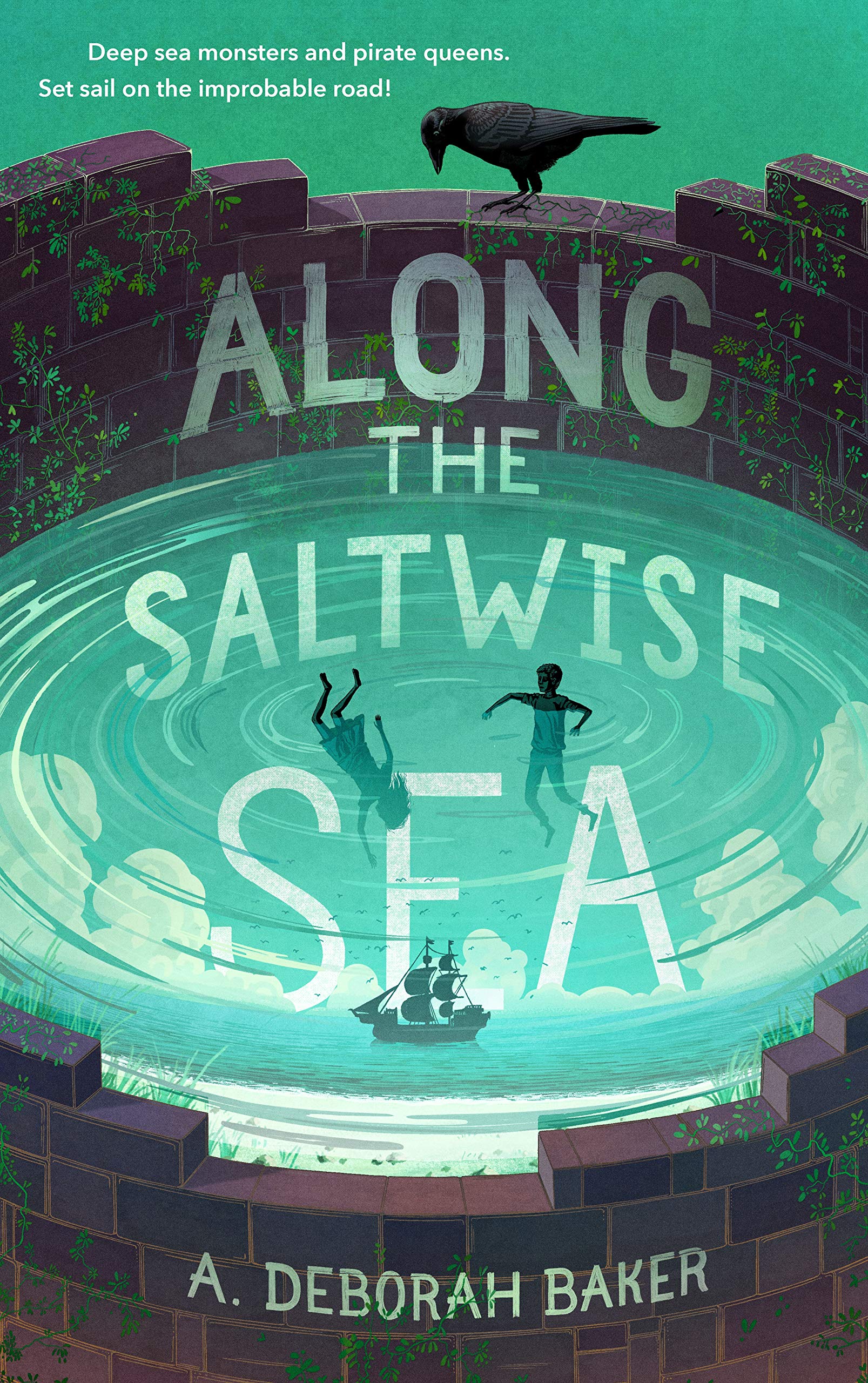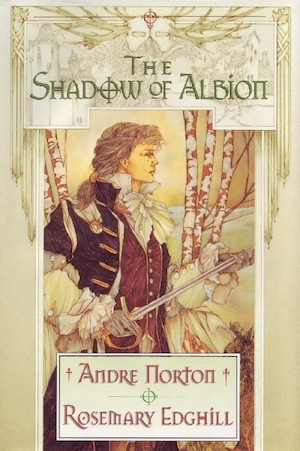I will say right up front that this, of all the Norton collaborations I’ve read so far, is my favorite. I love novels of the Napoleonic Wars, both real-world historicals and alternate-world fantasies. I like spy novels. I like fish-out-of-water adventures: characters thrust out of their own worlds or times. Add a strong dose of Faerie and a dollop of portal fantasy, and I’m there.
What’s fun about this is that it’s absolutely a Norton novel, with a whole range of her favorite things to do and not do, and yet Rosemary Edghill’s hand is visible in the smoother prose, the deft characterization, and the range and variety of historical and sartorial detail. It’s Norton, but more. As a collaboration, it’s just about seamless, and for me at least, it works.
The plot is one of Norton’s classics. It’s 1805. An orphaned, misfit young woman from the United States escapes wicked relative and is swept via Faerie magic into an alternate world in which the American Revolution never happened. The precipitating event for the timeline is the accession of the Duke of Monmouth to the British Crown as Charles III, rather than our world’s James II. England remained Protestant, though there’s a persistent Catholic underground. There’s no Hanover dynasty, no Mad King George and no Regency. Henry IX is King in England. Magic works, and the Older People play an active if undercover role in human events.
In Europe, events have proceeded much as they did in our world. The French had their Revolution, Napoleon rose to power on the back of it, and the likes of the Marquis de Sade and Talleyrand are doing their bit to further the Emperor’s cause. And a certain very secret, very clandestine order of spies serves directly under the king.
One of these is the very sexy Duke of Wessex. Our protagonist, Sarah Cunningham, finds herself in the place of a vitally important player on this world’s stage, the Marchioness of Roxbury. She’s brought here by magic and kept under control initially by brainwashing and attempted mind control, but that fails eventually. Though not before she’s forced to marry the cold and secretive Duke.
Secretive he certainly is, but cold, no. Not really. The romance is very Nortonesque, just barely there, and nearly all of it develops offstage. There is a fair bit of denial on both sides, which the alert reader knows is leading to the inevitable conclusion—especially once Sarah gets her full memory back and manages to share it with the Duke.
Sarah is rather a remarkable person. She grew up among Native Americans, and is a trained warrior. She hunts and shoots with remarkable skill. As a high-society lady she is not so subtly miserable, but once she escapes from the bonds of her rank and station and is kidnapped into France, she’s able to use her formidable skills to rescue herself and her friend Meriel, the beautiful scion of a rebellious English Catholic family. She also is instrumental in finding and rescuing a personage of tremendous importance to both France and England, Louis the Dauphin, lost and presumed dead but actually hidden in plain sight in the very heart of France.
Buy the Book


Along the Saltwise Sea
The plot is complex, the pacing headlong in true and classic Norton fashion. There’s a kidnapped Danish Princess, a wildly charming Polish Hussar in full fig including the shrieking eagle’s wings, a plot to snare the Prince of Wales with a honey trap but the honey isn’t willing—it goes on and on. It’s a wild and wonderful ride, and I enjoyed every bit of it.
I particularly loved all the little echoes and reminiscences and homage. The Polish officer is also a spy, a master of disguise—and his name is Ilya Koscuisko (sic). Which makes the Duke, ironically, Napoleon Solo, though he’s blond: he is otherwise tall and lean and saturnine, and always elegant. Which in turn points to the antecedents of The Man from U.N.C.L.E., including The Scarlet Pimpernel and, for that matter, A Tale of Two Cities. The apparently idle and useless nobleman who is actually a master spy is a beloved trope, which Norton herself played with in a number of novels before this collaboration.
And that adds to the fun of it. I was reminded particularly of The Opal-Eyed Fan, because of the orphan forced to find her way through an impossible series of setbacks. There’s a distinct resemblance to her Lyon Family novels, Yankee Privateer and, even more so, Stand and Deliver. I even saw echoes of Huon of the Horn in her Faerie king: the incalculably powerful personage no bigger than a child, who controls the passages between the worlds. (And I also note that one of the Duke’s aliases is Captain Reynard.)
The Nortonisms are present and accounted for. The offstage romances that present as done deals. The headlong and rather abrupt ending. The inevitable subterranean adventure.
Strictly objectively, they’re writing faults, but in this context, they’re part of the fun of it all. I would have been disappointed not to see at least the chase through the dungeon. It’s iconic.
And so is the rest. It’s homage of its own, a tribute to the tropes and narrative styles of a beloved master of multiple genres. It’s clear that Edghill loves and understands the style of her collaborator, and she does a fine and subtle job with it. The result is a grand adventure, and a pure pleasure to read.
I will be reading the sequel at my earliest convenience, for my own pleasure. Meanwhile, for this series, I’ll move on to another collaboration, The Elvenbane.
Judith Tarr has written historicals and historical fantasies and epic fantasies and space operas, many of which have been published as ebooks. She has won the Crawford Award, and been a finalist for the World Fantasy Award and the Locus Award. She lives in Arizona with an assortment of cats, a blue-eyed dog, and a herd of Lipizzan horses.










